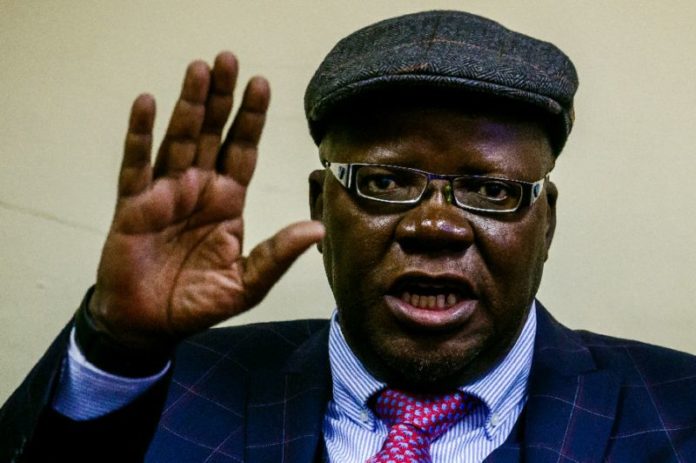LUSAKA, Aug 9, 2018 (BSS/AFP) – Zambian authorities on Thursday deported
top Zimbabwe opposition figure Tendai Biti, rejecting his claim for asylum
after he fled allegations of inciting post-election protests.
“As I am speaking to you right now he has been handed over to the
Zimbabwean police,” Biti’s lawyer Gilbert Phiri told AFP, charging that his
client had been deported in defiance of a court ruling.
A veteran figure in the opposition Movement for Democratic Change (MDC),
Biti fled to Zambia on Wednesday, amid what his party says is a crackdown
over its claims that last week’s landmark elections in Zimbabwe were rigged.
The UN’s refugee agency said it was “gravely concerned about reports of the
forced return” of Biti, an internationally-respected finance minister in
Zimbabwe’s 2009-2013 power-sharing government.
“Forcibly returning refugees and asylum-seekers to their country of origin
is a serious violation of international refugee law,” the UNHCR said in a
statement.
It called on Zambia to “investigate this reported incident urgently”.
Zambia had swiftly rejected Biti’s asylum claim and said he would be sent
back across the border, but the 52-year-old’s legal team filed a challenge
keeping him there until the case was reviewed.
However, Zambian government spokeswoman Dora Siliya said the order had not
been received until it was too late.
“His asylum was denied on the basis that in his country there is no
breakdown in the rule of law,” she said, adding that Biti himself was
“running away from the due process of the law” as he is wanted by
authorities.
“The court order only came after he was handed back to the Zimbabwe
authorities,” she said.
MDC leader Nelson Chamisa said he was “extremely concerned” by news that
Biti had been deported and that his current whereabouts were unknown.
“Those who took him are people we have not been able to identify,” Chamisa
told AFP.
Chamisa has repeatedly charged that the July 30 presidential election, the
first since veteran autocrat Robert Mugabe was ousted by the military in
November, was rigged.
The MDC will launch its legal challenge against the results on Thursday,
Chamisa said.
Mugabe’s successor President Emmerson Mnangagwa was declared the winner
with 50.8 percent of the vote — just enough to avoid a run-off against
Chamisa.
– South Africa president flies in –
According to Zimbabwe’s state-run Chronicle newspaper, Biti is among nine
suspects sought for inciting protests against alleged rigging which turned
deadly on August 1.
The army opened fire on the protests in Harare, killing six people and
prompting an international outcry.
Mnangagwa, who is seeking to reverse Zimbabwe’s economic isolation and
attract desperately needed foreign investment, had vowed the elections would
turn a page on Mugabe’s repressive 37-year rule.
But the aftermath of the polls has been marred by allegations by rights
groups as well as the MDC of a crackdown on opposition members, including
beatings and arrests.
Biti’s deportation is likely to come up when South African President Cyril
Ramaphosa heads to Zambia on Thursday at the start of a two-day regional tour
that will also see him head to troubled DR Congo as it gears up for elections
in December.
Ramaphosa will meet with Zambian President Edgar Lungu followed by talks
Friday with DR Congo’s Joseph Kabila.
In a statement, the South African presidency also said Ramaphosa would also
fly to Zimbabwe for Mnangagwa’s inauguration on Sunday, but this could be
delayed by Chamisa’s legal challenge.
“Those results represent a total negation of the will of the people,” MDC
lawyer Thabani Mpofu told reporters in Harare on Wednesday, charging that the
election results “grossly mathematically fail to tally”.
He said the party would reveal “a secret weapon” in court, but analysts
said the challenge was highly unlikely to overturn the declared results.
The Zimbabwe Election Commission — synonymous with fraud under Mugabe —
insists the elections were free and fair this time around.
International monitors praised the conduct of the election itself, although
EU observers said Mnangagwa benefited from an “un-level playing field” and a
degree of voter intimidation.



